MercoPress. South Atlantic News Agency
Tag: COVID-19
-
Friday, January 8th 2021 - 08:42 UTC
China Biotech vaccine tested 78% effective in Brazil trial, but doubts remain
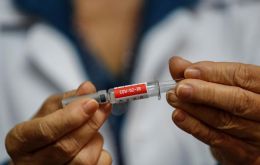
A coronavirus vaccine developed by China's Sinovac Biotech was 78% effective in a late-stage Brazilian trial with no severe COVID-19 cases, researchers said on Thursday, although a lack of data details stirred calls for more transparency.
-
Thursday, January 7th 2021 - 09:49 UTC
Uruguay extends closure of frontier until the end of January; concern with clandestine partying
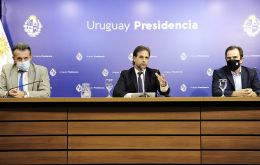
Uruguay announced on Wednesday a raft of new measures to help contain the growing number of Covid-19 positive cases which if sustained could strain hospital and sanitary capacities.
-
Wednesday, January 6th 2021 - 09:50 UTC
Latin America needs a financing boost to restart the economy

By Luis Carranza Ugarte – The president of CAF, the Development Bank of Latin America, says the post-pandemic era is the perfect opportunity for investment in the region’s infrastructure.
-
Wednesday, January 6th 2021 - 09:31 UTC
Argentina's country risk rises to 1,417 points; investors fear economic measures
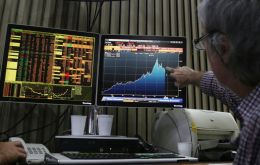
Argentina's country risk reached a maximum of 1,417 basis points on Tuesday, reflecting investors' fears about the behavior of the domestic economy and doubts about the international situation of the markets, traders told Reuters.
-
Wednesday, January 6th 2021 - 08:51 UTC
China has yet to authorize scientists' visit to Wunan as promised; WHO chief “very disappointed”

The head of the World Health Organization said on Tuesday he was “very disappointed” that China has still not authorized the entry of a team of international experts to examine the origins of the coronavirus.
-
Tuesday, January 5th 2021 - 09:55 UTC
Brazil diplomatic push to guarantee shipment of India made AstraZeneca vaccine
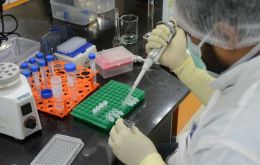
Brazil made a diplomatic push on Monday to guarantee an Indian-made shipment of British drugmaker AstraZeneca's COVID-19 vaccine, hoping to avoid export restrictions that could delay immunizations during the world's second-deadliest outbreak.
-
Tuesday, January 5th 2021 - 09:44 UTC
President Xi pledges a comprehensive strategic partnership with Argentina
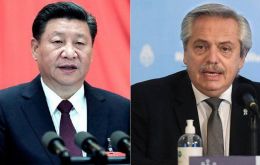
Chinese President Xi Jinping said that China stands ready to work with Argentina to promote high-quality Belt and Road cooperation and advance the building of a community with a shared future for mankind.
-
Tuesday, January 5th 2021 - 09:30 UTC
UK becomes first country to roll out the Oxford vaccine; but Johnson also orders new lockdown in England

British Prime Minister Boris Johnson on Monday ordered England into a new national lockdown to contain a surge in COVID-19 cases that threatens to overwhelm parts of the health system before a vaccine program reaches a critical mass.
-
Tuesday, January 5th 2021 - 09:17 UTC
China suspends imports from pork plant in southern Brazil

China has suspended imports from a Brazilian pork plant operated by privately-owned Aurora Alimentos over coronavirus concerns, according to a statement from meat trade group on Monday, in the latest suspension since the health crisis began.
-
Tuesday, January 5th 2021 - 09:13 UTC
Sao Paulo state confirms the first two cases of infections with the new strain

The government of Sao Paulo, the largest state in Brazil, confirmed on Monday two cases of people infected by the new strain of coronavirus, the same that has been putting parts of the UK in lockdown since the end of December.
